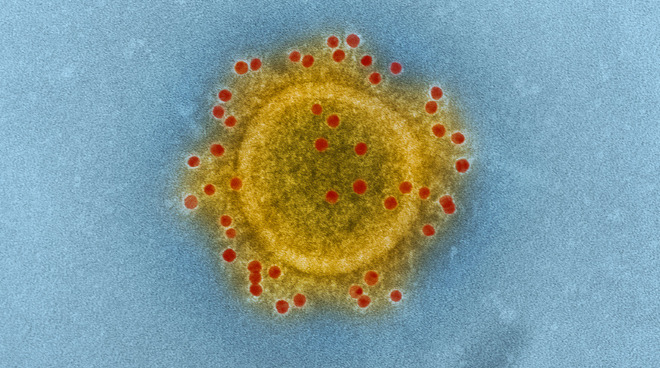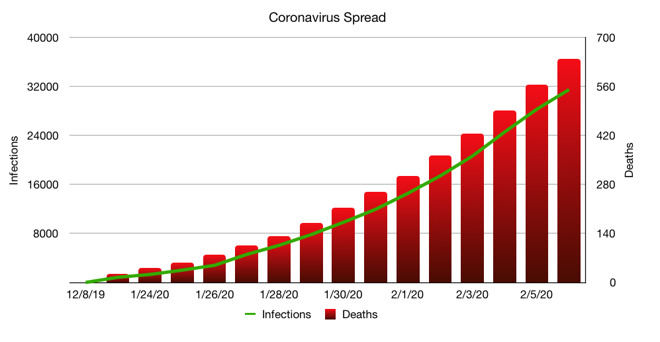Authorities order Foxconn to keep Chinese facilities closed
Apple assembly partner Foxconn has been told by Chinese authorities it cannot open its production facilities in China due to the coronavirus outbreak, due to the "high risks" of infection determined following an inspection by public health experts.

As authorities attempt to stem the spread of the coronavirus in China, Foxconn did its part to help on Friday by telling staff not to return to work on February 10, following the Lunar New Year. Rather than resuming operations on the originally anticipated return date, the assembly partner told its tens of thousands of employees to stay away from the Shenzhen plant.
A report by Nikkei claims the calling off of production has been further halted by the Chinese authorities, who have told Foxconn not to reopen. People familiar with the matter advised the factory was subject to on-site inspections by public health officials, which found there were "high risks of coronavirus infection" if it did reopen.
One internal memo about the inspection and government-ordered closure mentioned "Violation of epidemic prevention and control could potentially face the death penalty." Part of the problem is the production facilities use central air condition and have a high density of workers, conditions ripe for viral transference.
"The local governments do not want to risk the potential virus spreading in such a labor-intensive working environment," a source told the report. "No-one wants to bear the responsibility for restarting work at this critical moment."
On Friday, Foxconn took the extra step of canceling flight bookings for employees from Taiwan returning from their home country to China between February 7 and February 14. The measure was allegedly announced by Chairman Young Liu in a video conference that morning, who also confirmed the company's Zhengzhou complex would need to be evaluated by the local government before it could be reopened.

Foxconn has previously confirmed the coronavirus will affect production, and it is allegedly affecting Apple's AirPods along with other products it makes, such as iPhones.
As of February 7, the World Health Organization reports that there have been 31,481 confirmed cases of the coronavirus worldwide, and 638 deaths. These figures are up from the previous day, with a further 3,205 cases and 73 deaths. However, WHO says that no new countries reported any cases in the 24 hours before February 7.
Of the infections, the vast majority are based in China, with 31,211 confirmed cases in the country, 4,821 of which are deemed to be "severe," and 637 deaths.

As authorities attempt to stem the spread of the coronavirus in China, Foxconn did its part to help on Friday by telling staff not to return to work on February 10, following the Lunar New Year. Rather than resuming operations on the originally anticipated return date, the assembly partner told its tens of thousands of employees to stay away from the Shenzhen plant.
A report by Nikkei claims the calling off of production has been further halted by the Chinese authorities, who have told Foxconn not to reopen. People familiar with the matter advised the factory was subject to on-site inspections by public health officials, which found there were "high risks of coronavirus infection" if it did reopen.
One internal memo about the inspection and government-ordered closure mentioned "Violation of epidemic prevention and control could potentially face the death penalty." Part of the problem is the production facilities use central air condition and have a high density of workers, conditions ripe for viral transference.
"The local governments do not want to risk the potential virus spreading in such a labor-intensive working environment," a source told the report. "No-one wants to bear the responsibility for restarting work at this critical moment."
On Friday, Foxconn took the extra step of canceling flight bookings for employees from Taiwan returning from their home country to China between February 7 and February 14. The measure was allegedly announced by Chairman Young Liu in a video conference that morning, who also confirmed the company's Zhengzhou complex would need to be evaluated by the local government before it could be reopened.

Foxconn has previously confirmed the coronavirus will affect production, and it is allegedly affecting Apple's AirPods along with other products it makes, such as iPhones.
As of February 7, the World Health Organization reports that there have been 31,481 confirmed cases of the coronavirus worldwide, and 638 deaths. These figures are up from the previous day, with a further 3,205 cases and 73 deaths. However, WHO says that no new countries reported any cases in the 24 hours before February 7.
Of the infections, the vast majority are based in China, with 31,211 confirmed cases in the country, 4,821 of which are deemed to be "severe," and 637 deaths.

Comments
This is a great opportunity for Jingping to get off on increasing control even more. Despite their increased control however, their efforts to contain the virus have obviously failed. If they were really concerned about their society, they wouldn't be putting people in concentration camps and the wildlife markets where the virus came from would have been closed down long ago.
That only makes no sense (they close a major factory to control their people????) -- but none of it has any factual basis. Just hate.
I hope those quotes didn't scare you too badly. But, single party rule (you know, like we seem to have in this country) is not the same as dictatorship -- as much as you seem to want it to be.
boil it, or stir fry it, or deep fry it, steam it, smoke it, grill it, bake it ... whatever the 'it' might be. It could you know ... not kill a gazillion people.
Yesterday, a tourist from china, who had come to our country 10-days ago and visited around 5 cities all over the country, and vomited on a plane while heading to our city as the next stop. He is currently in quarantine in a hospital here. God, that is scary.
Given that the Chinese Government, at all levels, attempted to hide the problem, to the point of arresting 8 doctors who used proper channels, and given that other medical personnel were aware of SARS like symptoms of individuals since as early as late November, "their only recourse is massive quarantine" is now certainly true, though only because the Government ignored the earlier warnings. It is certainly true that the Government has been ill prepared as well.
https://www.businessinsider.com/coronavirus-whistleblower-doctor-li-wenliang-in-critical-condition-2020-2
"In the past five weeks, a new coronavirus has infected more than 28,000 people and killed at least 565 other people. Among those casualties is Li Wenliang, a 34-year-old doctor who was one of the first people to sound the alarm about the new outbreak.
Li sent a message to his medical-school alumni group on December 30 warning that seven patients had been quarantined at Wuhan Central Hospital after coming down with a respiratory illness that seemed like the SARS coronavirus. The police in Wuhan then reprimanded and silenced Li, requiring him to sign a letter acknowledging that he was "making false comments."
Li died of the coronavirus early on Friday at Wuhan Central Hospital, where he had been in intensive care for three weeks. The hospital confirmed his death at about 4 a.m. local time.
"During the fight against the novel coronavirus outbreak, Li Wenliang, an ophthalmologist at our hospital, was infected. Efforts to save him were ineffective. He died at 2:58 a.m. on Feb. 7. We deeply regret and mourn his death,".
Dr. Li Wenliang is widely recognized as a hero, and even a martyr in China.
"Just a reminder, he was 1 of 8 medical personnel arrest and then returned to duty after threats of punishment for attempting to warn other medical personnel or contact higher authority after being ignored by local authorities. In an interview before his death he stated he was exposed after his arrest, before it was known to be an asymptotic contagion, from a patient he interacted without a mask due to shortages at that time. Another doctor of that group was the 1st confirmed infection via the eyes, he continued to treat patients when goggles ran out."
A lot of WHO and Chinese protocols can be reviewed for effectiveness and new ideas can be brought to the table.
"That only makes no sense (they close a major factory to control their people????)"
Its called "public relations".
"But, single party rule (you know, like we seem to have in this country)"
Seem? Thats not even remotely accurate. Nothing gets accomplished in this country because of the blatant fact the TWO parties in control cannot cooperate to accomplish anything.
It's regional -- mostly in major cities that have been impacted.
He's dead right because he was a trained professional, in Ophthalmology of all things, treating patients for respiratory distress, and he told his superiors and other doctors what was going on. Not anything equivalent to yelling Fire! in a crowded theater.
He died because after he was arrested, he was forced back to caring for infected people without proper safety gear. Lack of safety gear was due to poor preparedness on the part of the Government.
You would have the place burn down rather than slow the conflagration. The Wuhan Coronavirus just exceeded SARS for deaths, and is still ramping.
Most healthcare professionals are giving poor marks to Chinese handling of the epidemic. Some are puzzled by why the WHO has praised them.
https://qz.com/1796376/the-coronavirus-shows-how-badly-china-handles-public-health-crises/
In two months, the new coronavirus that originated in Wuhan, Chinahas spread to every province of China and at least 23 countries around the world, killing over 200 people and infected over 17,000.
Journalists, scholars, and public health experts both in and out of China have pointed to the lack of data and public communication in the initial and critical stage of the virus’s spread.
By late January, amid international pressure, the Chinese government took drastic measures to contain the virus, including building a hospital in 10 days and putting a city of 11 million people, and later an entire province, under an effective quarantine. The World Health Organization praised and congratulated China for its swift response and transparency.
But for nearly a month after the first documented case, the local government kept the public in the dark: authorities kept the official number of confirmed cases low; briefly detained multiple doctors for spreading “rumors” about a new SARS-like outbreak, and insisted there was no evidence of human-to-human transmission even as hospitals in Wuhan overflowed with fever patients.
This pattern of initial downplay by local authorities and draconian interventions from the central government is a familiar one. In 2019, a deadly pig virus called African swine fever started out as a local problem but eventually ballooned into a national crisis and a global threat. During the 2003 SARS epidemic, China was accused of hiding critical information and exacerbating the spread of the virus.
So why does China seem to make the same mistake over and over even though the state shares the same goal as the international community in addressing public health crises? This special episode of Because China dives deep into why China keeps failing at identifying emerging problems and communicating critical public health information. The problem is baked into the way China’s bureaucratic structure is set up.